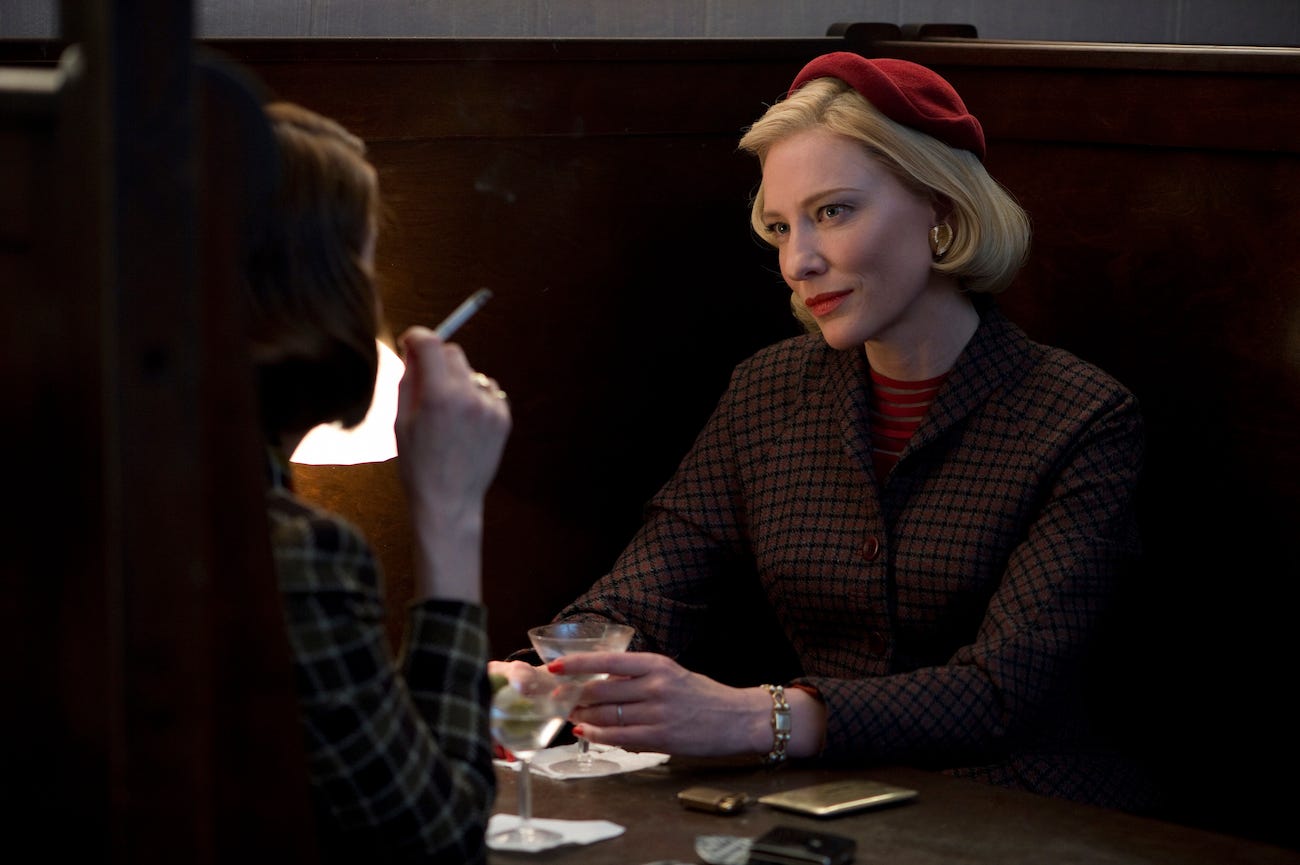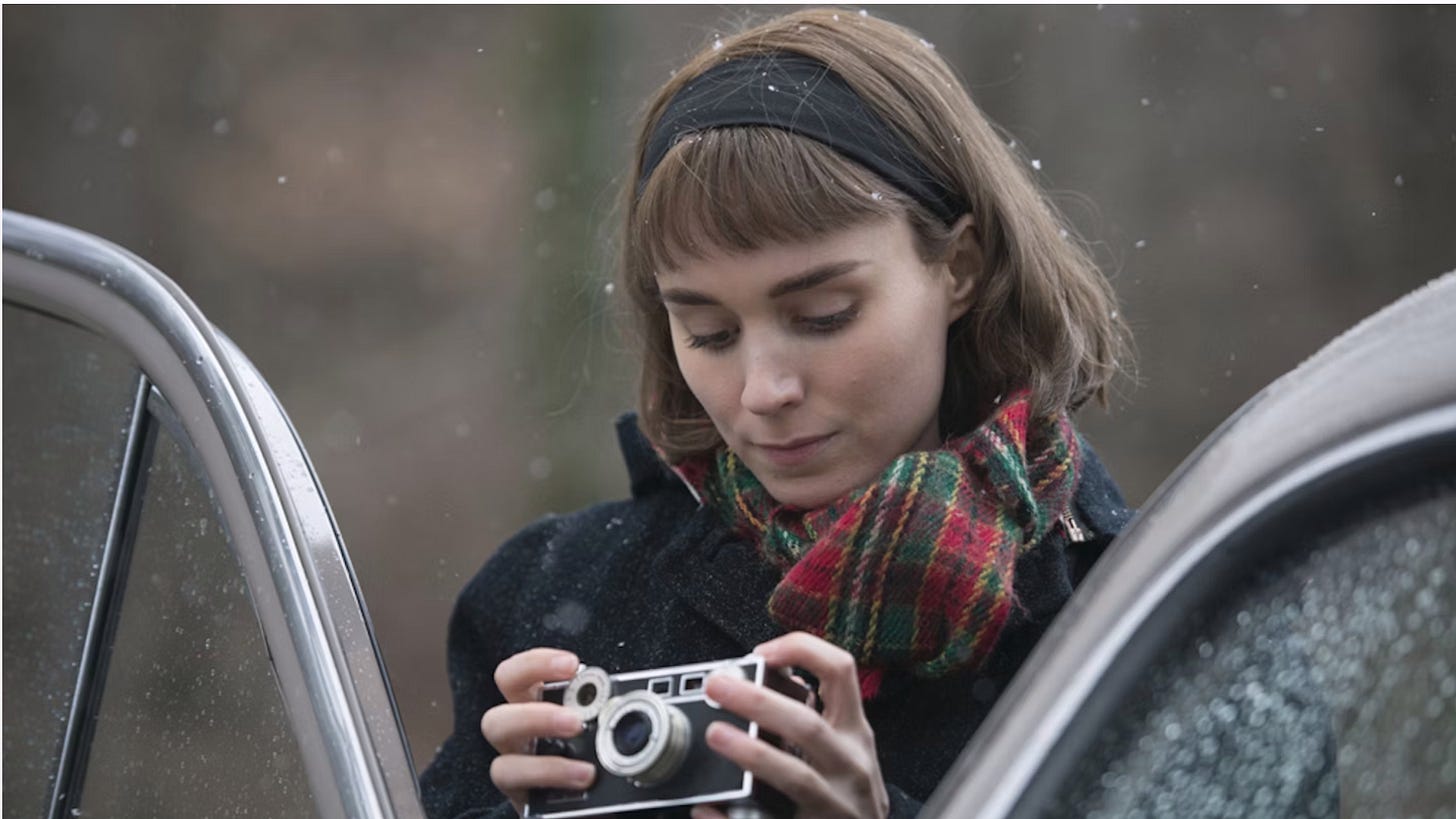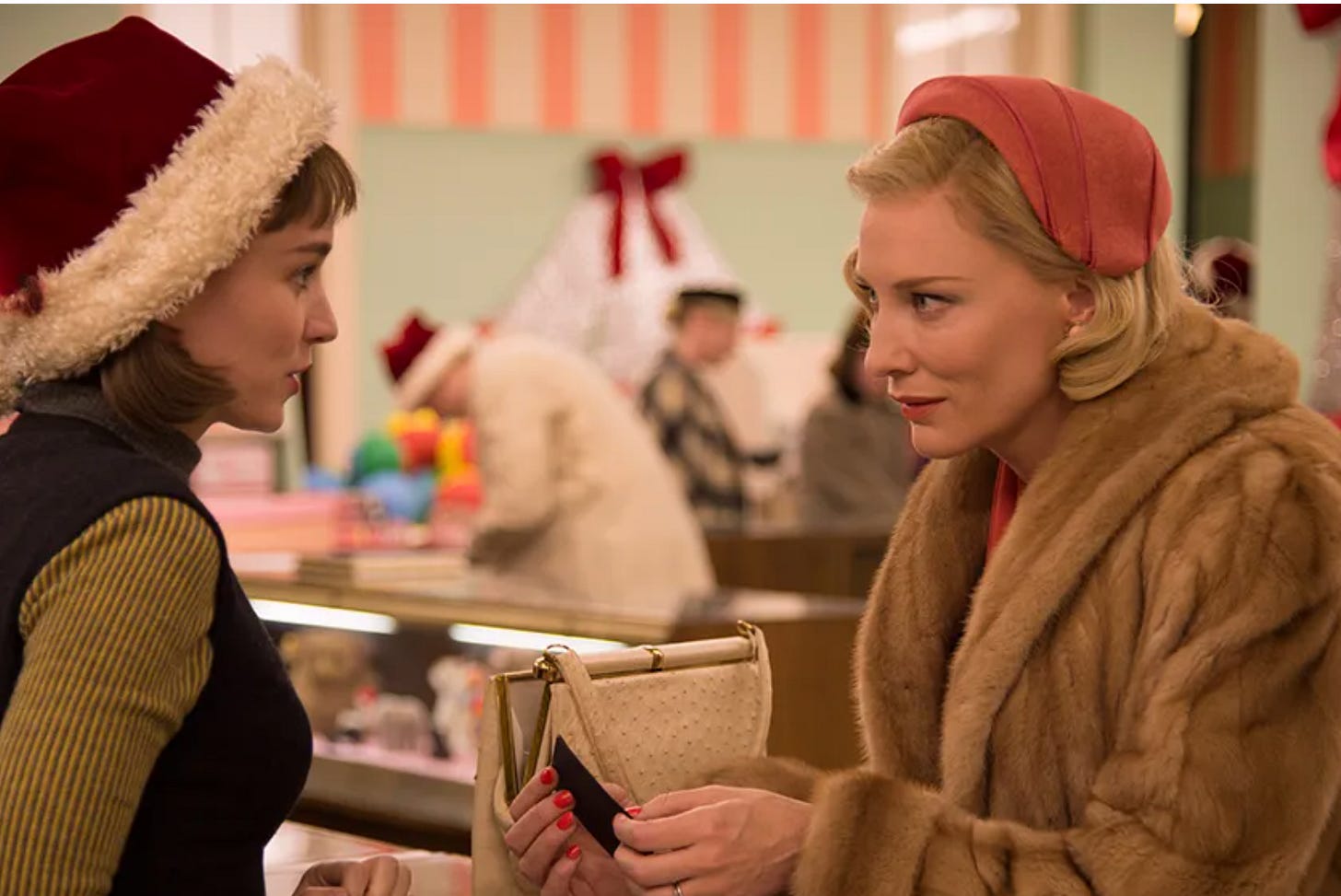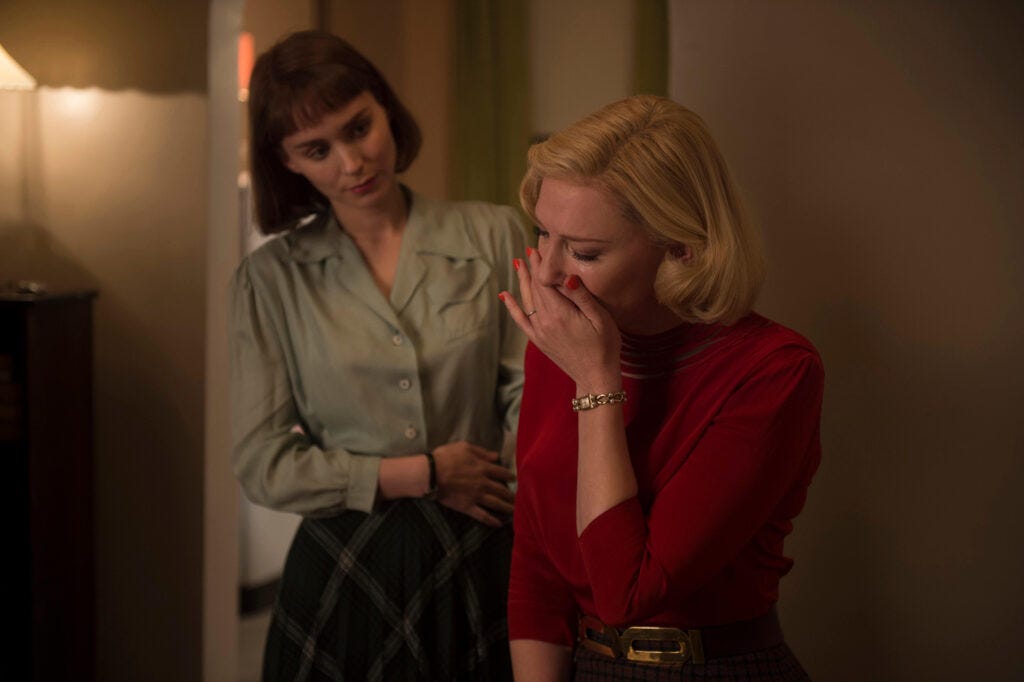carol
Film, 2015
Directed: Todd Haynes
Written: Phyllis Nagy (from the novel by Patrica Highsmith)
A friend of mine once told me that he spent the whole time watching Carol waiting for something to happen. I’ve read reviews about contrived plots and too-early reveals, about there being a coldness to Carol that was difficult to connect with, not believing the chemistry between the characters, about the film being… well...boring.
I reject the lot. Something was happening every moment. With every twitch of her face, every stare, every drag on a cigarette, Cate Blanchett transforms herself into something new. She expresses a different emotion, evokes a new reaction in her audience, reveals a new part to her personality. It’s a strange and ethereal gift she has, and when used within the beautiful, detail-perfect environs of a Todd Haynes-conceived world, it creates something magical.
Based on The Price of Salt by Patricia Highsmith (I believe one of the first mainstream lesbian novels to feature a happy ending), Carol tells the story of a young shopgirl and aspiring photographer Therese Belivet (Rooney Mara), and her chance meeting and subsequent entanglement with an older married woman, Carol Aird (Cate Blanchett). The film is, much like Todd Haynes’s masterpiece Far From Heaven, an exercise in emotional and visual authenticity.
Therese is dissatisfied with her life, looking for meaning and adventure, but she's so very young. Her sexuality is not defined, and she’s undecided on a lot of things - her career, her life, her perfectly nice but boring boyfriend. She’s waiting for her life to begin, frustrated by being unable to grab the chances she needs to make it happen. Then she meets the hypnotic, beautiful Carol, who appears calm and controlled, but is anything but. Therese sees immediately Carol is struggling to maintain a veneer of respectability while living her own private hell. She knows she shouldn't, but she can't do anything but follow.
Carol is separated from her husband Herge (Kyle Chandler) and is fighting to maintain both her independence, her true self, and joint custody of her beloved daughter. Her only confidante is good friend and former lover, Abby (Sarah Paulson), who is a wild spirit, completely unconstrained by and dismissive of social rules, but also bound to Carol through a strong friendship that has persisted through the years.
The film is told primarily from Therese's point of view (but not exclusively as in the novel), and we feel her unwillingness to conform to being a wife and mother, but also her fear of the alternatives.
She needs Carol’s strength to pull her along the journey that they are embarking upon, both physical (a driving trip across the country) and emotional. Carol is incredibly strong, capable of cutting off her own feelings for the sake of her daughter, and too strong-willed in the end to allow even a love for a child get in the way of her self-determination.
Her strength is all the more interesting for its one curious weakness. Therese cuts to Carol’s heart almost from the first moment. Carol at first seems to convince herself this is just a pleasant, temporary distraction from her troubles. Then a possible friendship. Then unexpected passion. Then blind need. And then…a struggle for her own self. Even when she knows unequivocally that her relationship with Therese will cost her everything, she surprises herself by being willing to pay that price.
It seems that even Carol doesn’t recognize the signs of love until almost too late, and when she does, the stripped-back, raw Carol that Blanchett presents is exquisite and painful to watch. When all the power shifts from Carol to Therese, the young girl must make what is possibly the first real adult, mature decision of her life. The final scene, as we begin to understand what the future of this couple will hold, is truly one of my favorite passages in film.
It’s about love, social mores, age versus youth, the class system, the relationships between men and women, and finally just the bonds between women, be it friendship or love. There's also plenty of passion. Blanchett is on record as saying she was nervous about filming the love scenes, but you would never know it. Or maybe the nerves played into it. It’s sweet, and Haynes directs it with just the right mixture of longing, awkwardness, and fear.
As easy as it is to just sit back and praise Blanchett, Rooney Mara is extraordinary. I don’t want to overlook how effortlessly she seemed to convey the charm and naivete of Therese.
Shot gloriously, costumed perfectly, filmed through half-opened doors and reflected in mirrors, down from windows and up from the ground, swirling sometimes like a kite through the air until we land harshly on the cold ground, Haynes has produced a masterpiece. If I had one small criticism it would be that preserving some of the specific phrases from the book sometimes lifted us out of the magic. They seemed odd and literary, and even Blanchett struggles to make them sound natural, but it's a small bug in what is a sleek, bold, mesmerizing statement about the nature of love.







Fully agree with you. A perfect movie, wonderfully played.